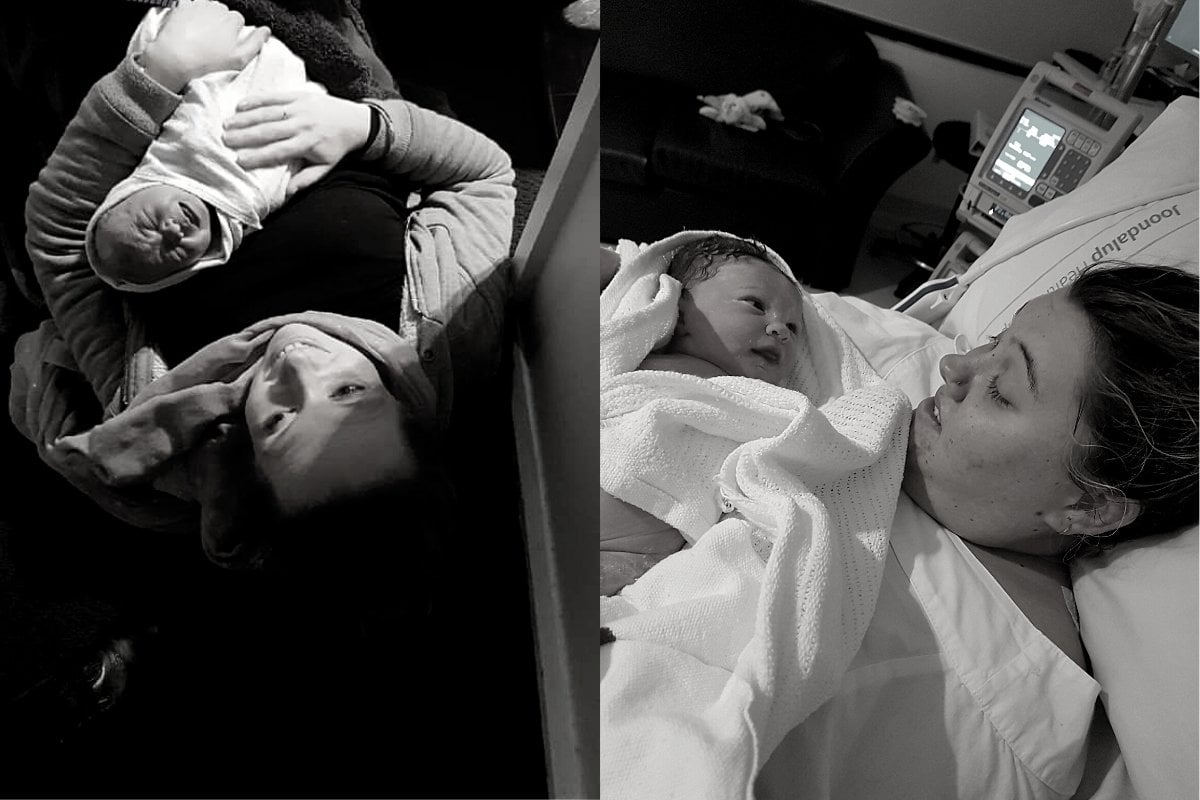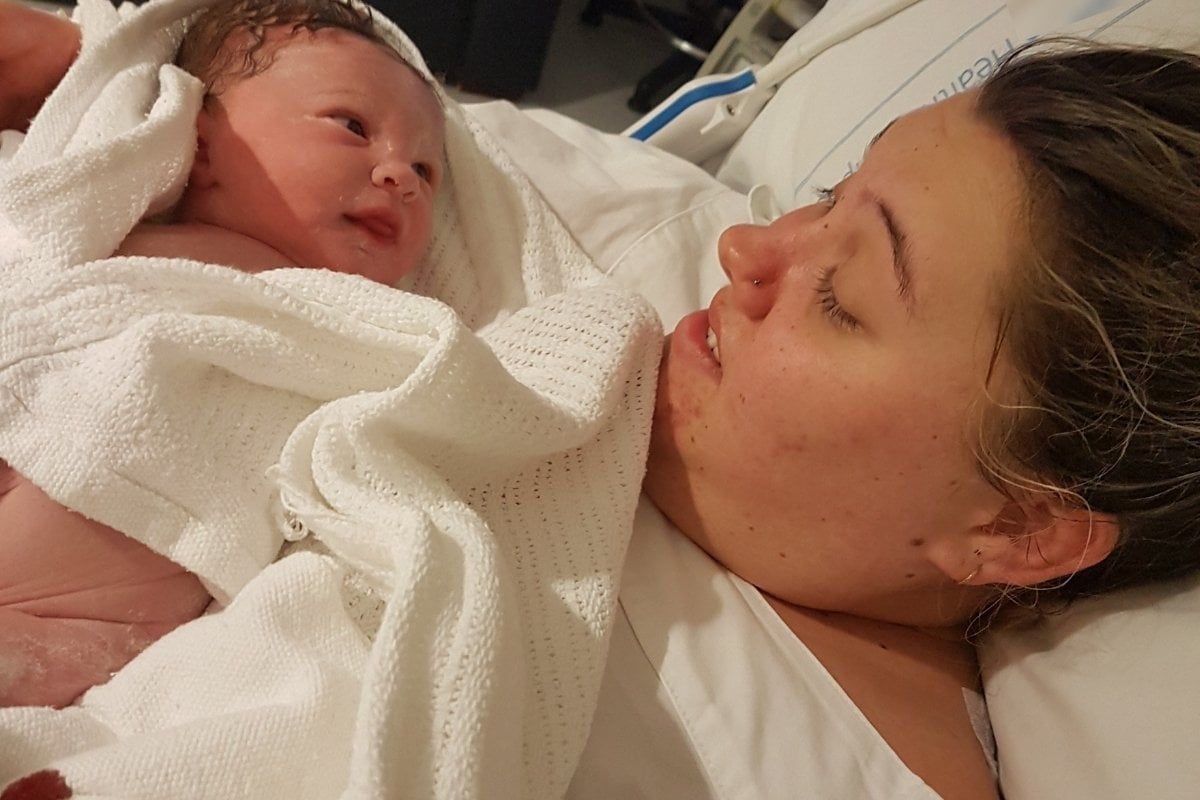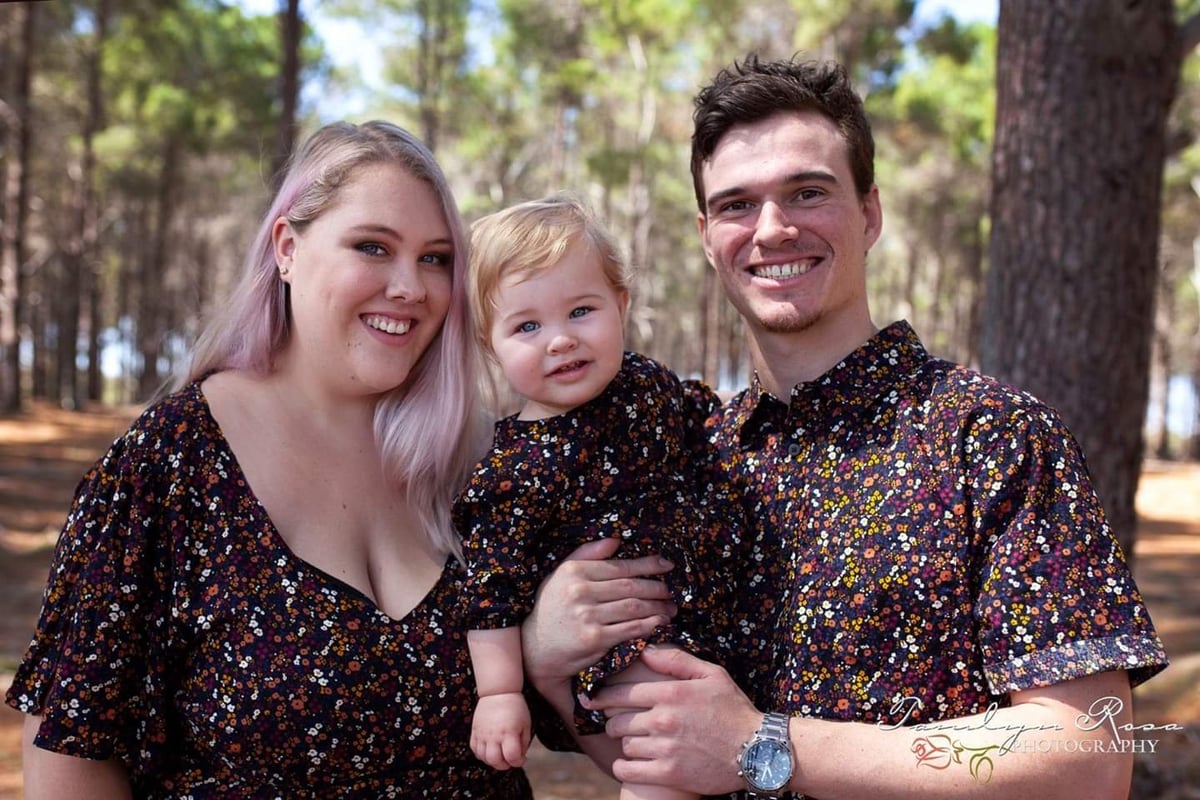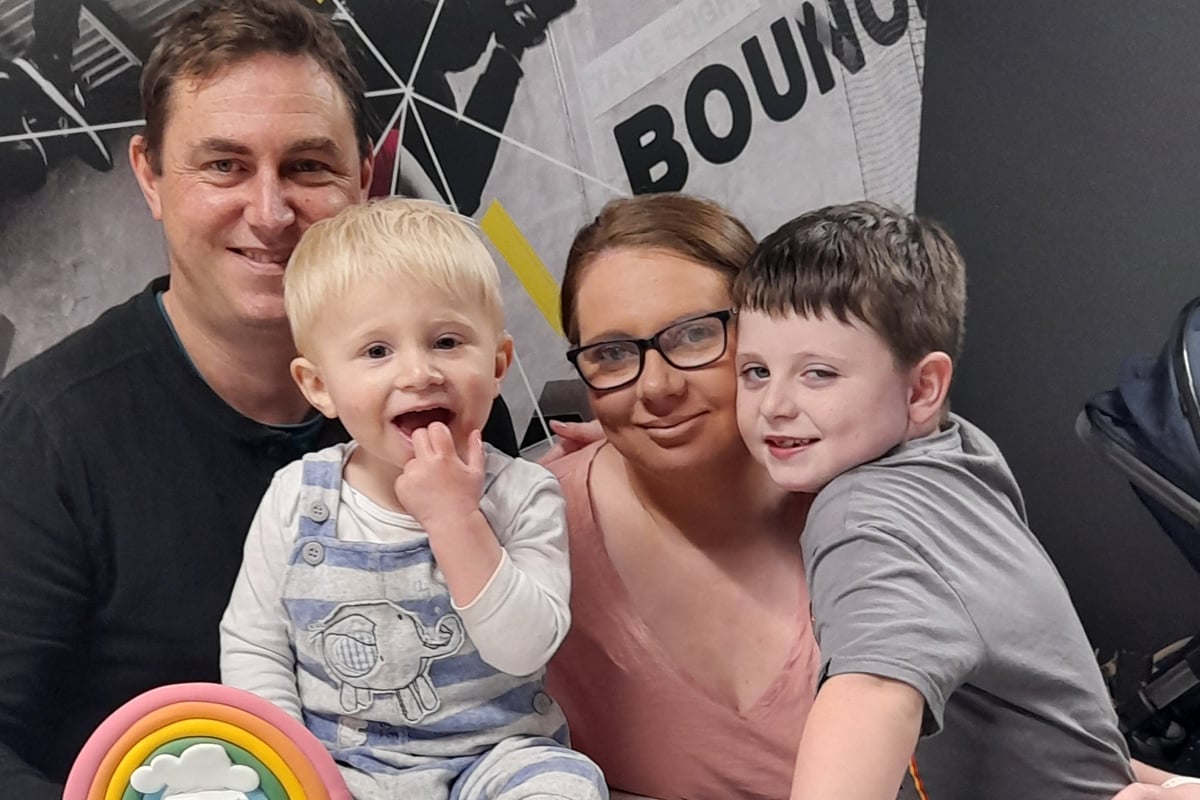
The following deals with birth trauma and suicidal ideation, which may be triggering for some.
Kristy Keefe was laying splayed on the floor of her hallway when she started to deliver her second child.
In excruciating pain, the Tasmanian woman tried to focus on the voice of the Triple Zero call centre operator on the other end of the phone.
It was late one afternoon in 2019. She'd just picked her four-year-old son up from kindergarten. Her husband was still rushing home from work. Her waters had broken. There was pressure in her pelvis. She felt the urge to push.
Her mind raced back to her previous delivery of the little boy now sitting metres away in the lounge room. He had arrived not breathing and needed intervention from doctors. But there, in her hallway, there was nobody to help.
Mercifully, just as her baby's head and one of its shoulders made their way into the world, Kristy's husband came bursting through the door with paramedics in tow.
Little Riley was delivered safely, and both mother and baby were taken to the hospital. The same place Kristy had been dismissed from just four hours and 45 minutes prior.
Watch: The facts on postnatal depression.





Top Comments